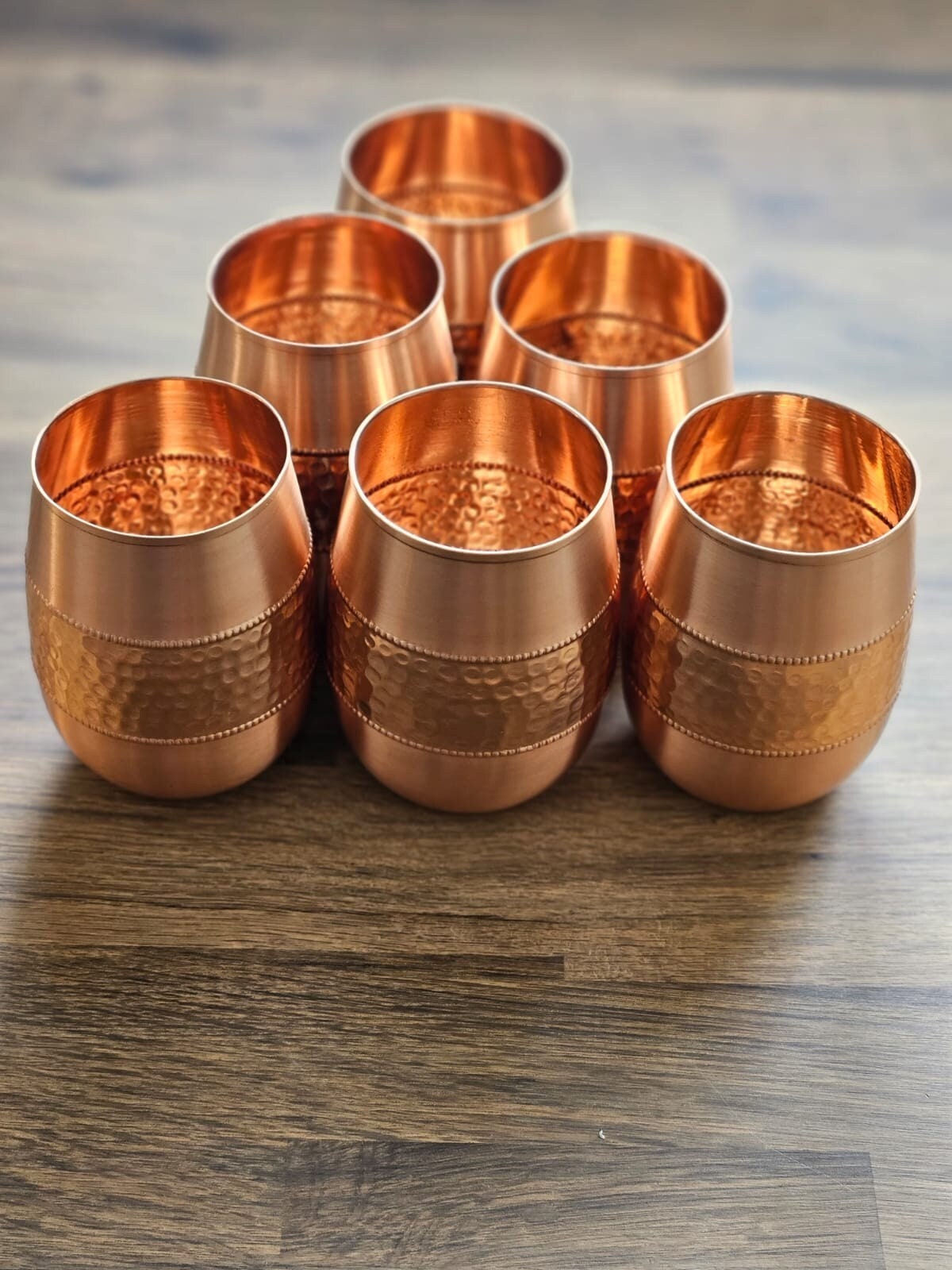From Art to Capability: The Many Applications of Unique Copper Products
From Art to Capability: The Many Applications of Unique Copper Products
Blog Article
Exactly How Copper Products Add To Lasting Practices in Different Industries
In renewable power systems, for instance, copper boosts the performance of solar and wind modern technologies, while its application in construction lessens waste with long life. As industries seek to adopt more lasting techniques, the role of copper might confirm critical in achieving ecological objectives.
Copper in Renewable Power
Copper plays a vital role in the development of renewable resource innovations, functioning as an essential conductor in different applications. Its phenomenal electrical conductivity and resistance to corrosion make it an ideal material for electrical circuitry, which is important in solar panels, wind turbines, and energy storage space systems. In solar photovoltaic or pv systems, copper is made use of in the affiliations and wiring, making it possible for efficient power conversion from sunlight to electrical energy.
In wind power, copper is integral to the generators and transformers that transform kinetic energy right into electric power, making sure optimal performance and integrity. In addition, the need for electric cars (EVs) is increasing, with copper being an essential element in batteries, motors, and charging infrastructure. The change to EVs substantially enhances the demand for copper, as these vehicles typically use four times extra copper than standard internal burning engine lorries.
As the world seeks to minimize environment change and shift to sustainable power resources, copper's function becomes significantly vital. The product not only improves the efficiency and durability of eco-friendly power systems but additionally supports the broader objective of decreasing greenhouse gas discharges and advertising a lasting future.
Eco-Friendly Construction Materials
In the last few years, there has actually been a significant shift towards the adoption of eco-friendly construction materials in action to expanding environmental worries. This change is inspired by the requirement for lasting alternatives that decrease environmental footprints while maintaining structural stability and visual charm.
Copper, recognized for its longevity and recyclability, has emerged as a principal in this sector. It can be utilized in roof covering, plumbing, and electric systems, adding to power performance and reducing waste. Copper's durability indicates fewer substitutes in time, further boosting its sustainability profile.
Furthermore, materials such as bamboo, recovered timber, and recycled steel are obtaining popularity. These choices not only supply minimized ecological influence yet also advertise resource conservation. As constructing codes significantly stress sustainability, architects and home builders are incorporating these products into their tasks, cultivating advancement in design.
The increasing fostering of green building materials shows a wider dedication to sustainability in the built atmosphere. By focusing on these materials, the building and construction market can substantially decrease its carbon impact, align with regulative requirements, and support a healthier ecological community for future generations. This trend marks an essential step in the direction of a more sustainable future in building and construction.
Copper's Duty in Healthcare
Current research studies have highlighted the significant duty of copper in health care settings, specifically because of its antimicrobial homes. Copper surface areas have been shown to lower the visibility of microorganisms, consisting of bacteria and infections, by as much as 99.9% within a brief period. This impressive efficiency makes copper an invaluable material for high-touch surface areas in hospitals, such as doorknobs, bed rails, and IV posts, thereby adding to improved infection control actions.
Along with its direct antimicrobial results, copper also plays a function in the broader context of hospital sustainability (Copper Products). By integrating copper into medical equipment and home furnishings, healthcare facilities can reduce the incidence of healthcare-associated infections (HAIs), which not only improves patient outcomes but likewise decreases the prices connected with extensive healthcare facility stays and additional therapies
In addition, copper's durability and recyclability line up with lasting practices, permitting for liable source administration. As health care systems significantly prioritize both person security and ecological stewardship, the integration of copper products is ending up being much more widespread. This double advantage emphasizes copper's vital contribution to a much healthier, more secure, and more lasting health care setting.
Sustainability in Transportation

Furthermore, copper's resilience and deterioration resistance add to the durability of transport infrastructure (Copper Products). In rail systems, as an example, copper parts improve the dependability and performance of signaling click here now and power systems, necessary for reducing delays and power consumption. Furthermore, copper's duty in renewable resource systems, such as solar and wind, supports sustainable transportation remedies by providing clean energy for electrical transit alternatives
Investments in copper innovation not only foster sustainability however likewise promote economic development and task development in environment-friendly fields. As industries strive to meet stringent ecological policies, the application of copper products in transportation arises as a pivotal technique in accomplishing sustainability objectives and advertising a cleaner, more efficient future.
Copper and Round Economy
As the globe progressively embraces sustainability, the role of copper in the round economy comes to be ever extra considerable. Copper's innate residential properties-- such as its recyclability, durability, and conductivity-- setting it as a vital material in a resource-efficient economy. The circular economic climate aims to lessen waste and maximize resource usage with recycling and reusing products, and copper master this respect.
The metal can be reused indefinitely without loss of high quality, making it an optimal candidate for lasting methods across various industries, including building, electronics, and renewable resource. By reprocessing and recovering copper from end-of-life products, markets can considerably decrease the need for virgin materials, consequently reducing ecological effects connected with mining and processing.
Furthermore, the assimilation of copper into circular economy structures not just preserves sources yet additionally fosters development. Organizations that prioritize copper recycling contribute to a go now more lasting supply chain, enhancing their competition while straightening with governing needs and customer preferences for environmentally responsible products.
Verdict
Finally, copper products significantly add to sustainable practices throughout multiple fields. Their essential role in improving renewable resource innovations, advertising environment-friendly building and construction products, supporting infection control in health care, facilitating sustainable transport, and personifying the principles of a round economic climate underscores the convenience and relevance of copper. By incorporating copper into numerous applications, industries can achieve higher efficiency, lower environmental influence, and line up with international sustainability goals, inevitably promoting a much more sustainable future.

Copper's superb conductivity makes it see here now a recommended material in electrical car (EV) systems, boosting energy performance and performance. Additionally, copper's duty in renewable energy systems, such as solar and wind, sustains sustainable transport services by supplying tidy energy for electrical transportation choices.
Their necessary duty in improving renewable energy innovations, promoting eco-friendly construction materials, supporting infection control in medical care, helping with lasting transport, and embodying the principles of a round economic climate emphasizes the versatility and importance of copper.
Report this page